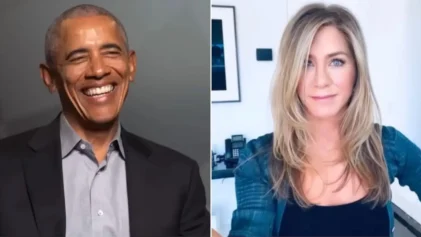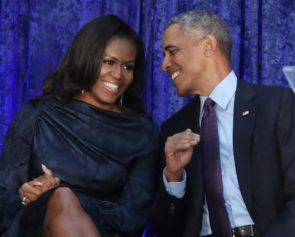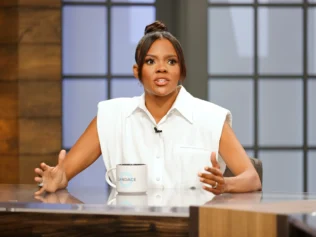Boston Marathon bombing suspect Dzhokhar Tsarnaev was taken into custody last night after an intense manhunt as President Obama, addressing the nation, called the capture the end of “an important chapter.”
The president said authorities were just beginning to figure out the motives behind the attack and whether others were involved with Dzhokhar Tsarnaev and his older brother, Tamerlan Tsarnaev, 26.
Tamerlan Tsarnaev was killed by police in a gunfight before Dzhokhar fled, leading eventually to his capture in Watertown.
“The families of those killed so senselessly deserve answers,” Obama said, calling the alleged perpetrators of the crimes “terrorists”—something he had refrained from doing when he initially spoke of the marathon bombings.
Whatever “hateful agenda” motivated the attackers, Obama said, it “cannot prevail.”
“They have already failed,” the president said, because Americans refused to be terrified and intimidated.
It was brave talk from the commander-in-chief, but there was plenty of terror and intimidation in the streets and households of Boston throughout the day on Friday.
Officials told Bostonians to stay inside as they shut down schools, universities, businesses, public transit and even taxi service, in the hunt for the two brothers identified in video footage as the possible culprits behind the bombs that killed three and injured more than 170 at last Monday’s marathon.
The brothers are also suspected of murdering 26-year-old MIT campus police officer Sean A. Collier and critically wounding a transit police officer, Richard H. Donohue, by shooting him in the right leg.
While law enforcement in Boston hunted for Dzhokhar Tsarnaev after his brother was killed, the Obama administration was doing its own wide-ranging investigation.
The inquiry reached into the Russian republics of Chechnya and Dagestan, where members of the Tsarnaev family lived before immigrating to the U.S., and also included the questioning of domestic sources. At one point, authorities interviewed three college-age people in New Bedford, Mass.
Russian President Vladimir Putin called Obama late in the day and personally assured him that Russia would provide assistance.
Obama was one of millions of Americans glued to the television as officials cornered Dzhokhar in a boat in a backyard last night.
After the president was at the White House residence for dinner and watched the police pursuit draw to a close, he walked back to the Oval Office and learned from FBI Director Robert Mueller that the suspect was taken alive.
Because the younger Tsarnaev was alive, officials hope they might get information about the reasons behind the attack.
When he spoke to mourners at an interfaith service in Boston on Thursday, Obama had warned the alleged perpetrators, “we will find you.”
But when he spoke to reporters in the White House briefing room Friday night, Obama told Americans they should let investigators do their work before jumping to conclusions about who is to blame.
“When a tragedy like this happens, with public safety at risk and the stakes so high, it’s important that we do this right,” Obama said. “That’s why we take care not to rush to judgment, not about the motivations of these individuals, certainly not about entire groups of people.”
Boston Police Commissioner Edward Davis on Friday night described the circumstances leading to the capture of the younger brother.
“A man had gone out of his house after being inside the house all day, abiding by our request to stay inside,” Davis said. “He walked outside and saw blood on a boat in the backyard. He then opened the tarp on the top of the boat, and he looked in and saw a man covered with blood. He retreated and called us.”
“Over the course of the next hour or so we exchanged gunfire with the suspect,who was inside the boat, and ultimately, the hostage rescue team of the FBI made an entry into the boat and removed the suspect, who was still alive,” Davis said.
He said the suspect was in “serious condition” and had apparently been wounded in the gunfight that left his brother dead.
Officials didn’t read him his Miranda rights because the authorities will be invoking the public safety exception to question him extensively about other potential explosive devices or accomplices, and to try to gain intelligence.
Boston Mayor Thomas M. Menino posted a message on Twitter: “We got him.”
The president on Friday also issued an emergency declaration, pledging disaster relief aid to Texas to help in the recovery efforts following this week’s deadly fertilizer plant explosion near Waco. The blast killed at least 14 people, injured more than 200 others and demolished buildings for blocks around.
Details about the older brother, Tamerlan Tsarnaev (tam-arr-lawn tsar-NAH-yev), emerged yesterday, including that he was interviewed by the FBI in 2011 when a foreign government asked the bureau to determine if he had extremist ties. A senior law enforcement official said the foreign government knew that Tsarnaev was planning to travel there and feared that he might be a risk.
While the official wouldn’t say which government made the request, Tamerlan Tsarnaev’s father said that he traveled to Russia in 2012.
“They had something on him and were concerned about him and him traveling to their region,” the official told the New York Times. After conducting a review, examining Web sites that he had visited, determining whether he was spending time with extremists and ultimately interviewing him, the FBI concluded that Tsarnaev was not a threat.
“We didn’t find anything on him that was derogatory,” the official said.
The FBI released a statement late Friday confirming it had investigated Tsarnaev but “did not find any terrorism activity, domestic or foreign.”
The statement said the FBI had requested more information from the foreign government, but had not received it.
His father, Anzor Tsarnaev, said the son had mostly stayed with him at his home in Makhachkala, the capital of the Dagestan region, but that the two men had also visited Chechnya.
“We went to Chechnya to visit relatives,” Tsarnaev told the Times in an interview in Russia.


